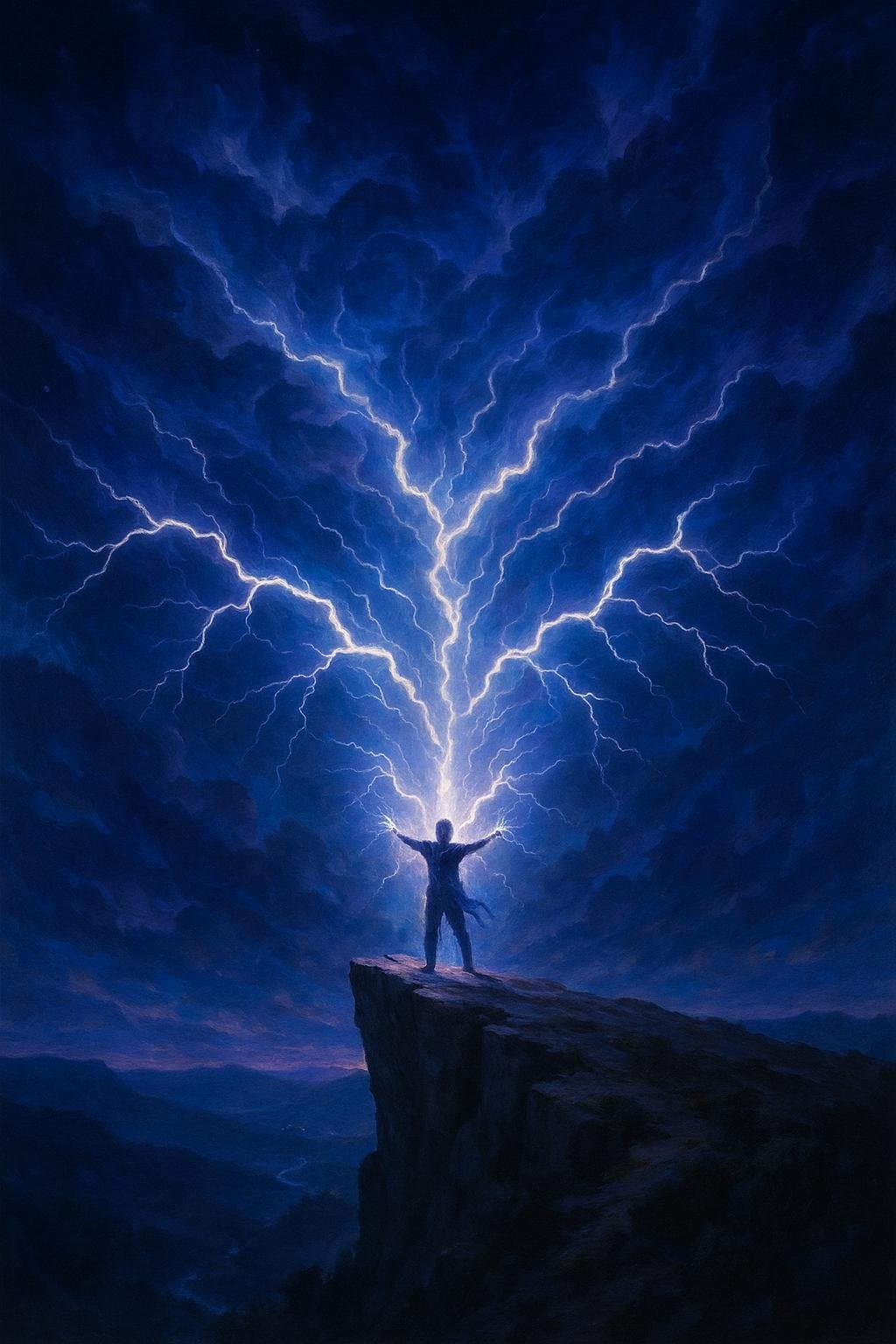Becoming the Spark: Rumi’s Call to Inner Transformation

You must be the lightning, and then the lightning will come to you. — Mevlana Jalaluddin Rumi
—What lingers after this line?
One-minute reflection
Why might this line matter today, not tomorrow?
Embodying Energy Before Receiving It
Rumi’s evocative metaphor equates our inward state with the forces we attract. To 'be the lightning' is to embody the very dynamism, brilliance, and passion we seek from the world. This principle aligns with the adage ‘like attracts like’; before expecting external inspiration or enlightenment, we must first cultivate it within ourselves. In this spirit, Rumi suggests that action precedes reward—echoing his mystical insistence on personal transformation as the precondition for outer change.
Mystical Roots in Sufi Philosophy
Transitioning from imagery to philosophy, Rumi’s words are steeped in the Sufi tradition, where the seeker’s inner journey mirrors the divine forces at play in the cosmos. Sufis like Rumi taught that seeking union with the divine involves becoming receptive—by kindling inner light, one becomes worthy of higher revelation. Thus, 'the lightning will come to you' if you have made yourself into a vessel strong enough to bear it.
Manifesting Versus Waiting
Expanding this notion, Rumi’s wisdom stands in contrast to passive longing. Instead of waiting for a spark from outside—a mentor, a breakthrough, or sudden luck—he urges us to actively generate our own energy and enthusiasm. This concept is echoed in countless traditions; for instance, the Zen maxim 'the teacher appears when the student is ready' implies awakening is a result of readiness cultivated from within.
Modern Reflections and Self-Actualization
This call to proactive creation resonates with modern theories of self-actualization. Psychologist Abraham Maslow (1943) identified self-initiated growth as central to human flourishing: only when individuals claim agency and ignite their own development can they attract opportunities and inspiration. Rumi’s lightning analogy thus prefigures these contemporary insights about inner readiness paving the way for transformation.
Consequences of Becoming the Lightning
Ultimately, by challenging us to embody the energy we desire, Rumi champions self-reinvention over passive hope. Those who ‘become the lightning’ often inspire those around them and catalyze change in their environment. Like a storm, inner intensity not only attracts further energy but also illuminates the path for others—transforming both self and the wider world in the process.